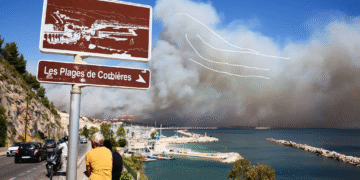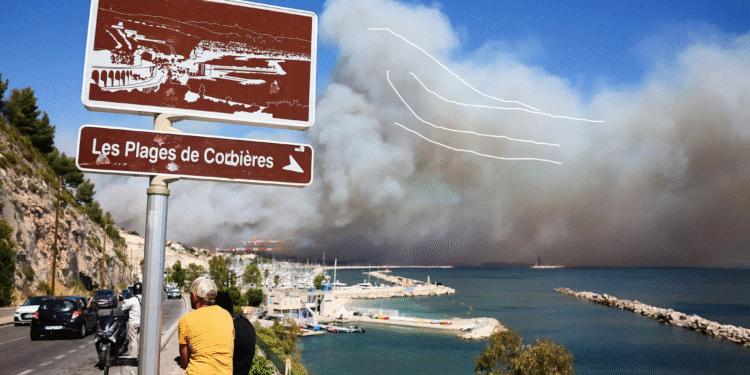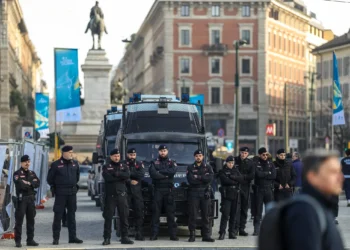Officials report that a wildfire near Marseille has injured over 100 people.
On Wednesday morning, firefighters were able to put the wildfire under control at Marseille after working all night to keep it from spreading to France’s second-largest metropolis.
After the wildfire wounded over 100 people and forced hundreds to flee, local officials said Wednesday that firefighters had fought through the night to bring a fast-moving fire on the outskirts of Marseille, France’s second-largest city, under control.
A car fire in Les Pennes-Mirabeau, a tiny village roughly 8 miles north of Marseille, started the fire. By late Tuesday, the wildfire had spread to around 1,700 acres due to strong, unpredictable winds, prompting the authorities to impose a brief flight ban, halt trains, and shut down some roads.
Bruno Retailleau, France’s interior minister, traveled to Marseille Tuesday night and held a press conference with the mayor and other officials. According to Mr. Retailleau, at least 110 persons were hurt, including at least 30 firefighters, as well as local and national police. Considering the severity of the fire, he called it “exceptional” that there were no fatalities.
According to Mr. Retailleau, over 600 professional and volunteer firefighters, along with 15 firefighting helicopters and planes, were engaged in combating the flames. He stated that 14,000 people were instructed to remain at home and at least 400 were ordered to evacuate.
Georges-François Leclerc, the local state representative, informed reporters in Marseille Wednesday morning that the fire had “in sharp decline” and had already destroyed ten homes. Lionel Mathieu, head of the Marseille fire brigade, stated that the fire was no longer spreading and had mostly ceased burning, and that crews were now working to completely extinguish it.
Due to the fire, Marseille-Provence Airport canceled flights on Tuesday. One of the most active airports in France, it handled over 11 million passengers in the previous year. The airport announced that flights would recommence on Wednesday at 9:30 a.m., but cautioned that some disruptions might still take place.
The blaze broke out after a days-long heatwave dried out areas of Western Europe, making forests into tinderboxes. The French weather service had cautioned that, due to the windy conditions, there was also a significant chance of wildfires in other parts of the nation.

Residents of Marseille seemed to be extinguishing spot fires with buckets of water and tree limbs in videos shared on social media. Additional pictures from the region revealed dense clouds of smoke billowing over the seaside town, which is a favored summer spot on the Mediterranean coast.
City officials in Marseille Wednesday night advised inhabitants to “restrict their movements so as not to hinder rescue operations” and to stay off the streets so that firefighters could work without disturbance. Those closest to the blaze, on the city’s outskirts, were instructed to remain indoors and shutter and curtain their windows. Early on Wednesday morning, that order was lifted, but local authorities stated that it was still too soon for those who had evacuated to come back home.
More than 1,000 firemen were fighting yet another fire close to the city of Narbonne, which is also located on France’s Mediterranean shoreline. Officials reported Tuesday that the fire had scorched almost 5,000 acres.
Spain was also attempting to put out a huge fire across the border. As firefighters fought a fire that emergency services reported had consumed about 6,000 acres since Monday, the Catalonia regional government commanded citizens of almost a dozen communities and areas to stay in their homes.
Numerous European nations have issued weather alerts in response to the heat wave. On Tuesday in Greece, temperatures exceeded 40 degrees Celsius (104 degrees Fahrenheit), leading officials to issue wildfire warnings and limit visiting hours to the Acropolis.
Although extensive research is needed to link a single heat wave to climate change, scientists are certain that heat waves are increasing in frequency, duration, and intensity worldwide. The World Meteorological Organization reports that last year was the warmest ever recorded.
































